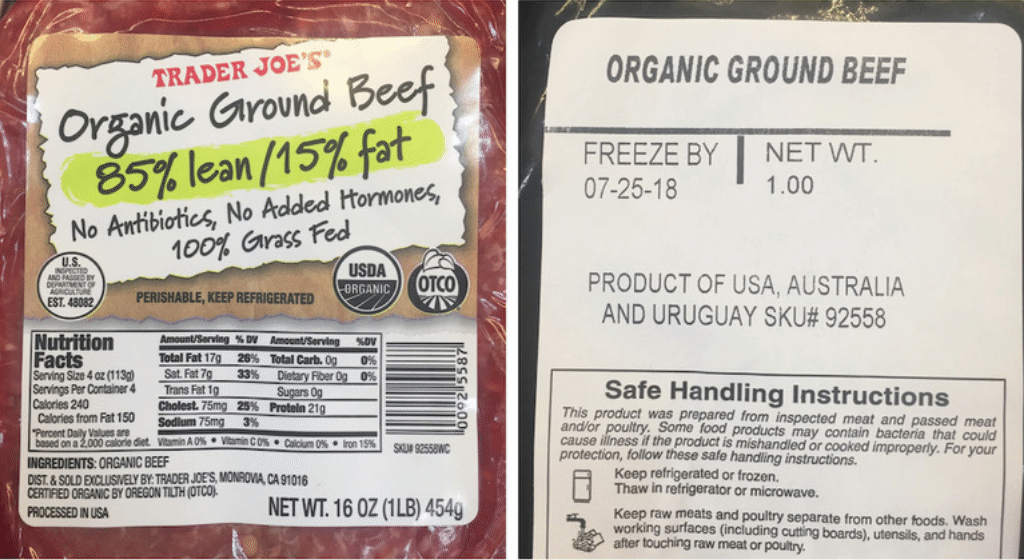What it Means to be “Made” in America
Anyone else remember Mr. Rogers Neighborhood and the “how people made things,” segments? Fred and Mr. McFeely narrating, me snacking on a PB&J with the crusts cut off as the jazz piano twinkles in the background. Hypnotically, brass is pressed again and again into the form of a trumpet. Toy balls are inflated to check for quality. Buoyant cubes of tofu float in stainless steel tubs.
Soon after Y2K, Mr. Rogers and his popular segments were gone. The “offshoring” movement was well underway, shipping the US manufacturing sector off to countries with lower labor costs, racing to the bottom to compete with American’s insatiable demand for lower prices. Arguably, the greatest casualties have not been product quality and safety, but a loss of manufacturing infrastructure that will probably never return to US Soil.
The same could happen to our sustainable meat supply.
“Did you know you can bring in meat born and raised, processed and butchered in countries like Uruguay, Australia, and New Zealand, and then sell it right here in the US as American beef?” says White Oak Pastures Rancher, Will Harris.
Say what?
In a day and age where even my disposable plastic is labeled with where it comes from, you’d think—of all things—American beef would have stringent country of origin labeling (COOL) to reassure us of where it was raised.
Not anymore.
The USDA now allows any beef or pork that has been “processed” in America (which could simply mean cut into smaller portions or ground) to be labeled as US beef, even if it never lived a waking moment on US soil. The result is 85% of the “Raised in America” grass-fed beef you find in grocery stores or restaurants, actually comes from other countries. The reason, cheaper labor and better weather mean lower prices.
Despite the efforts of groups like the American Grassfed Association (AGA), and the watch dog Organization for Competitive Markets, a growing number of companies are consolidating and offshoring the US grass-fed supply, falsely marketing foreign meat with claims that it comes from US pastures.
And these aren’t shady shadow companies with fake addresses in Delaware. They’re from brands and in stores you trust.
Most notably, Bubba Burgers, a brand carried by Target and Walmart. They label their 100% grass-fed beef as “born and raised” in the US of A. Yet, when a reporter reached out to discuss publicly available government documents that suggested some of their beef came from Australian, Bubba went dark.
Trader Joe’s, a brand synonymous with tree huggers and Birkenstock wearers alike, was sued by the Made in USA Foundation for deceptive meat labeling, and has since started printing meat origin—in tiny type—on the back of their ground beef packets.
Understandably, ranches like White Oak have been up in arms about what they consider anti-competitive marketing practices. We’ve “simply given away” our meat industry to special interests and other countries without even fighting for it, says Harris.
A Grass Fed Insights Report, said that US ranchers owned 60 percent of the domestic grass-fed market in 2014. After the USDA changed its COOL standards, allowing foreign meats to claim American Citizenship, that number dropped to 20 percent. Today, they say beef makes up less than 15 percent of the current market, and it’s rapidly shrinking.
But is foreign beef all that bad?
I’m not an elitist locavore who says everything you eat has to come from around the corner. Most Californians forget, much of America doesn’t have the diversity or climate to justify eating only what your neighborhood produces.
But I am for evening the playing field, especially for our farmers. I’m sure Australian grass-fed beef is delicious. But why should they get to call it “American” simply because somebody ran it through a grinder at the Port of Los Angeles?
The environmental concern is equally strong. This fiscal disincentive will certainly discourage more of the US meat industry from considering grass-fed beef a viable business option. That means US feedlots and CAFOs will continue to proliferate, while the rest of the world cleans up its meat making practices on our dime.
The way I see it, if foreign producers want to compete on price, let them. But don’t take away the greatest differentiator for meat raised here in the US. We’re effectively hamstringing our workers and increasing our reliance on imports. That’s not good in any industry.
If you’re as up in arms about this as I am, what can you do about it?
The USDA already got a mouthful during a public comment period back in 2018 when more than 2,800 people aired their frustration online. It’s a fun read. There is also a bill before Congress, proposed by South Dakota Senators Mike Rounds and John Thune, called the “U.S. Beef Integrity Act.” This would reverse the 2016 decision, and clearly distinguish US animal proteins from foreign raised. A quick Google search led me to the COOL specialist email at the USDA.
Sooooo…if you’ve got a free moment, why not drop the USDA a Happy Holiday note suggesting how they might be able to get off of Santa’s naughty list.




